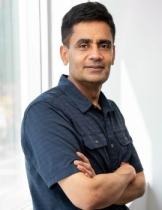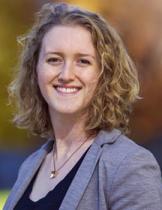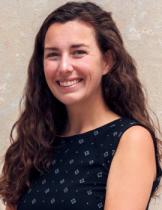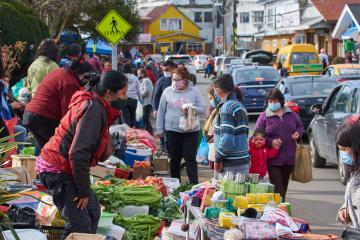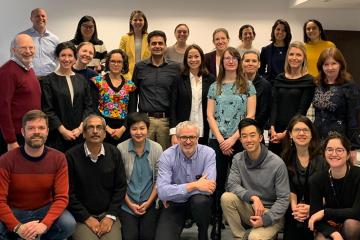
J-PAL Global’s community reunites after 18 months of remote work
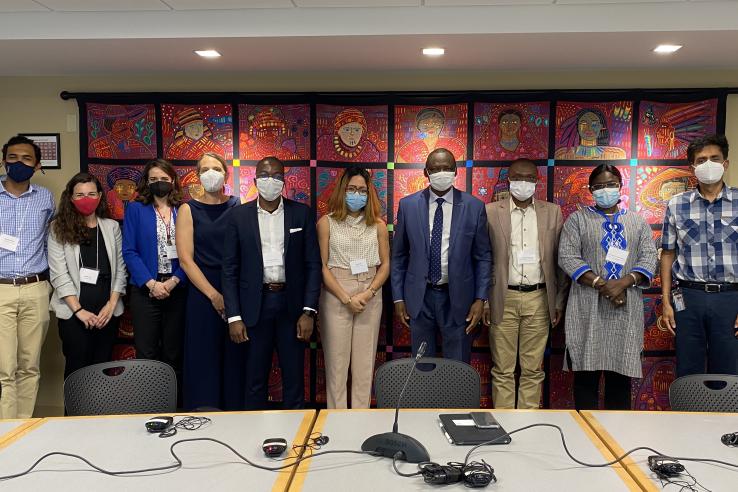
On March 12, 2020, MIT and J-PAL Global (our head office), like so many other organizations worldwide, went into lockdown to help prevent the spread of Covid-19. What we had originally anticipated to be just a temporary closure of a few weeks eventually extended into an 18-month experiment of working from home.
With each passing month, we learned to adapt. We zoomed, webexed, and teamed. We improved our work-from-home ergonomic set-ups and learnt how to juggle 24/7 roommates, kids learning from home, clingy pets, weak wifi, and being stuck inside. And we continued to push forward J-PAL’s mission of ensuring that policies are informed by scientific evidence, by collecting data, funding and launching research, and leveraging existing evidence to inform emergency response.
This September, thanks to increasing vaccinations and a huge amount of work done by MIT to keep us safe, J-PAL Global reopened our doors to staff, bringing masked and vaccinated teams in on a rotating basis to ease social distancing. While the return to in-person operations is a homecoming for most of our staff, many J-PALers who joined us during the pandemic are experiencing the office and MIT’s campus for the first time.
Converging on campus has been an unparalleled opportunity for staff—both old and new—to renew the strong connections that define the J-PAL community. Through ice-breakers, team building activities, lunches, and even an all-office kayaking outing, we’ve learned more about each other and how we work together in a month than in the 18 months of work from home. We feel extraordinarily fortunate that vaccine availability in the United States has enabled us to return to the office, and hope that this opportunity will be available soon for many J-PALers worldwide.
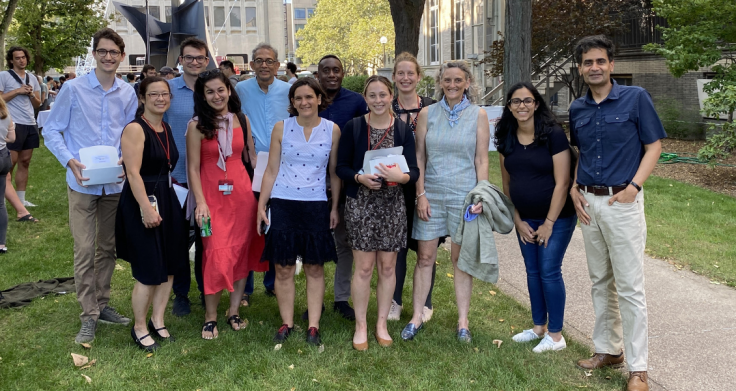
Welcoming visitors to our offices
Beyond rebuilding our team connections, returning to the office allowed us to invite back visitors. Just one week after our return, we were already welcoming our first group of external visitors—a fantastic group of senior government officials from Burkina Faso keen on discussing their plans for launching an evidence-based innovation center for the promotion of human capital development.
The delegation consisted of five members, including three government representatives, Dr. Nicolas Meda (Special Advisor to the President in charge of the Human Capital Agenda), Dr. Landaogo Ouedraogo (Permanent Secretary, Ministry of Health), Dr. Maminata Traore-Coulibaly (Minister in Charge of Scientific Research and Innovation), and two team leaders from the Tony Blair Institute for Global Change.
Over a three-day visit, they met with a range of J-PAL staff and affiliated researchers to discuss relevant sector evidence and opportunities for adaptation and scale, reflect on best practices for implementing innovation units within government, and explore future opportunities for collaboration.
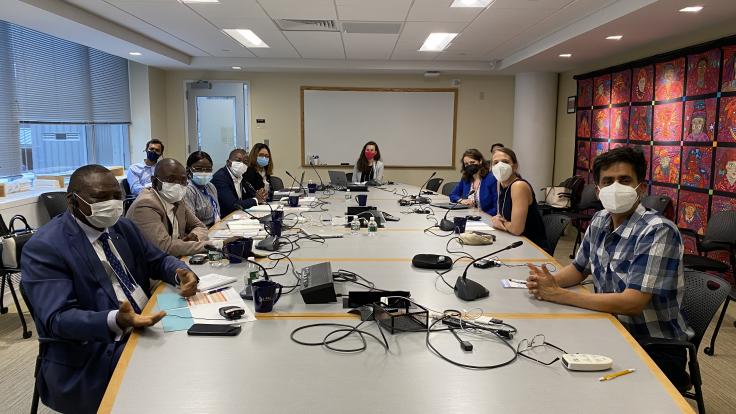
While virtual meeting platforms have created unprecedented opportunities for fostering new connections during the Covid-19 pandemic—reducing the physical, financial, and logistical barriers that have often stood in the way of in-person convenings—they are not a perfect substitute for developing the rapport, creativity, and candor that may be critical to the success of long-term policy partnerships.
The hybrid future
Both for our external outreach and for our office work, we hope to leverage the lessons learned from our remote work experience to make the best use of in-person contact and social connections, as well as the flexibility and time-saving of remote work. Every week will have a mix of in-person days as well as work-from-anywhere days for all Global staff.
Some of our veteran staff have already relocated out of Cambridge for a permanent remote-work arrangement, and we have opened some of our new positions for future staffers to be based anywhere in the world. We are investing in technology and learning on how best to be equally inclusive of everyone, irrespective of where staff are based.
The hybrid model will create both opportunities and challenges, and we look forward to making the best of it.
